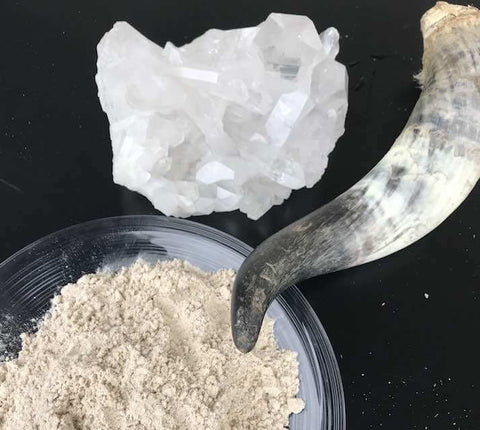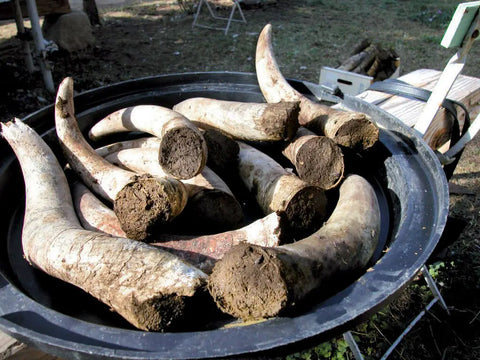Biodynamics continues to divide opinions. Between fervent defenders convinced of the total validity of its precepts and fierce opponents describing it as a cultivation method with no scientific basis, a middle ground expressing more nuances might help to better understand it. That's exactly the purpose of this article!
To clarify, let's trace its origins, its precepts, its advantages, as well as its flaws.
The origins of biodynamics
To understand the origins of biodynamics, one must first look into Rudolf Steiner (1861-1925).Austrian author and philosopher, he is the founder of Anthroposophy, a school of thought aiming to be close to nature and presenting the world as governed by spiritual forces. Anthroposophy notably borrows many concepts such as karma or reincarnation from Indian religions. Already lost? Don't worry, the following will be more concrete.
Based on Anthroposophy, Rudolf Steiner developed in the early 1920s several applications derived from these doctrines in the fields of education, medicine, and, of particular interest to us here, agriculture.
Thus, in 1924, he delivered a series of eight lectures known as the Course for Farmers.During these interventions, he developed the foundations of an agricultural method emphasizing a strong connection between the earth, living beings, and cosmic rhythms. Biodynamics was born.
The precepts of biodynamics
The primary and concrete goal of biodynamics is commendable: to stimulate the fertility of ecosystems in order to produce higher quality ingredients (or wine) and recreate a connection between the earthly, plant, and animal worlds.
To this end, biodynamics prohibits the use of synthetic pesticides (just like organic farming) but also encompasses a spiritual and pseudo-scientific dimension for those who adhere to all its principles.
Thus, a winemaker certified
Demeter or
Biodyvin (the two labels certifying biodynamics) must, for example, take into account
the movements of the planets in order to carry out their work in the vineyard. A
specific lunar calendar establishes, for example, the beneficial days for pruning or plowing.
Moreover, several
biodynamic preparations must be used by the farmer. In homeopathic doses, certain herbs (nettle, chamomile, dandelion, etc.) are diluted in water, and then the mixture is "dynamized" by a certain number of rotations to subsequently treat the vines.To illustrate this point, we often talk about the
preparation 500, also known as
"horn manure" : cow horns filled with manure are buried here during the six winter months. In spring, the content will then be dynamized in water and used to fertilize the soil.
It is also worth noting that biodynamics promotes crop diversity in order not to reduce biodiversity. Moreover, it encourages the earth-animal-plant relationship and that's why our animal friends (sheep, pigs, etc.) sometimes actively participate in the vineyards to fertilize the soil, control weeds, or limit pests.
In summary, biodynamic agriculture thus takes up the main principles of organic farming but adds to it a spiritual vision that considers the movement of celestial bodies, includes certain preparations, and views the environment as an indivisible whole.
To compare conventional and biodynamic agriculture, I often like to use the analogy of modern Western medicine and Chinese medicine. In the former, symptoms are treated after they appear, often thanks to technology and chemistry (cf. conventional agriculture). In the latter, the aim is to prevent and anticipate the body's needs so that illness never appears, all while using practices closer to humans and nature, such as acupuncture, herbs, massage, etc. (cf. biodynamic agriculture).
Preparation 500 or "horn manure"
The limits of biodynamics
While the founding principles of biodynamics seem very positive and are focused on the unity between humans and nature, it is important to highlight that this movement of thought and agriculture suffers from numerous flaws.
Thus, Steiner's founding principles for his Course for Farmers are based on absolutely no scientific evidence. The ideas presented during this series of lectures, which were later compiled into a book, are indeed primarily derived from his sole and unique intuition ! Consequently, one adheres by pure faith and not on a documented and quantified basis.
Moreover, numerous esoteric and magical considerations significantly undermine the overall credibility of this work. An example: according to Steiner, preparation 501 (based on horn silica) "enhances solar light and allows for a better relationship with the cosmic periphery as well as with the entire cosmos" . Very precise and factual, isn't it?
The staunchest opponents of biodynamics therefore reject all its precepts, arguing thatthe very foundations of its practice largely lack any common or scientific sense.

Preparation 501 or "horn silica"
Conclusion
So, is biodynamics organic ++ or a pseudo-scientific cultivation method ?
Two schools coexist among winemakers. On one side,
the die-hards , like the famous
Nicolas Joly , winemaker of La Coulée de Serrant in the
Loire , fiercely defending biodynamics as a whole by integrating its spiritual and esoteric parts.On the other hand,
more pragmatic winemakers , the majority, praise the fact that biodynamics allows them to be more attentive and observant in the vineyard. These winemakers then focus on practicing the most concrete biodynamic precepts, such as avoiding synthetic pesticides and using preparations to fertilize the soil.
In any case, it is unfortunate that so few scientific studies are currently dedicated to biodynamics . Implementing a scientific follow-up over several years of its agricultural practices would certainly help to shed light on the effectiveness (or ineffectiveness) of certain practices... and settle the debate once and for all? Probably not, but that is alsothe beauty of wine: a subjective world of exchange and sharing, where everyone can discern and appreciate different things.
If you are convinced of the impact of biodynamics on wines, feel free to explore our carefully curated selection dedicated to
biodynamic wines! We also have a wide range of
organic winesand if you are only concerned with taste and quality, head directly to
La Cave Éclairée!
































